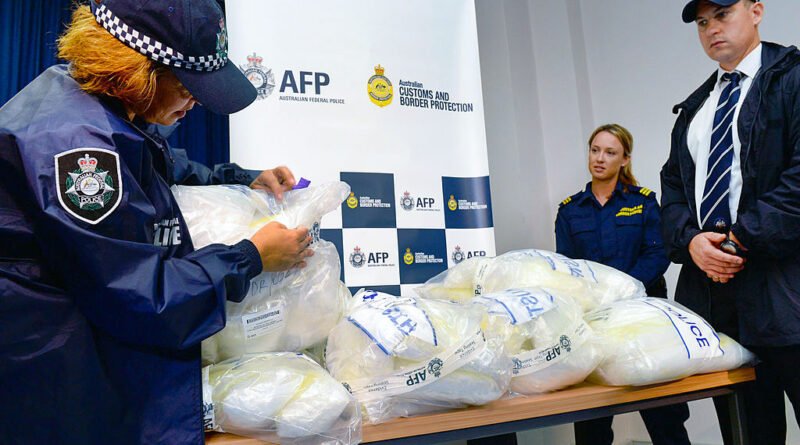Australia’s Wastewater Analysis Confirms It as ‘Stimulant Nation’
The data present ‘a stark reminder of the persistent and evolving challenge of drug use and its implications for public health and safety,’ said ACIC CEO.
A national wastewater analysis has confirmed that Australia is a “stimulant nation” for drug users, with cocaine consumption in capital cities and regional areas reaching record highs last year.
The Australian Criminal Intelligence Commission (ACIC) released the in-depth analysis on July 11.
It found that Australia’s “strong preference for illicit stimulants” positioned the country 4th out of 34 participating nations.
Australia recorded the second-highest per capita consumption of methyl amphetamine compared to 29 other countries. It ranked 3rd out of 20 countries for cannabis consumption, 20th of 32 countries for cocaine consumption, and 15th out of 33 countries for MDMA consumption.
The data also revealed the record high level of nicotine and methyl amphetamine consumption in Australia in December 2023 in capital cities.
Meanwhile, the average consumption of methyl amphetamine, cocaine, MDMA, MDA, ketamine, alcohol, and nicotine increased in both capital cities and regional areas. By contrast, there was a decline in the average consumption of cannabis.
The report noted these results “underscore an enduring concern with methylamphetamine use, particularly in regional communities.”
ACIC CEO Heather Cook said the data present “a stark reminder” of the ongoing and evolving challenges posed by drug use and its impact on public health and safety.
“As we continue to combat this issue, it is crucial to understand underlying factors contributing to these trends and to develop targeted strategies to address them,” Ms. Cook said.
She noted that the analysis permits the ACIC to engage meaningfully with international agencies on transnational drug threats. It is also increasingly used as a key element in drug “early warning systems,” which enhance the ability to anticipate and respond to emerging drug threats.
“Working alongside our domestic law enforcement partners, certain investigations now integrate targeted, high-intensity wastewater analysis to gauge the impact of law enforcement actions,” she said.
Drugs Decriminalised Despite Worsening Drug Abuse
Despite increasing drug consumption, support for decriminalising ecstasy and cocaine has increased between 2016-2019, according to an Australian national drug survey in 2023.
In the same year, the Australian Capital Territory’s Labor-Greens majority government announced legislation to decriminalise heroin, meth, and cocaine, making the territory the first Australian jurisdiction to do so.
Under the new laws, people caught with 1.5 grams of cocaine, meth, MDMA, or one gram of heroin, would receive merely a $100 fine.
Decriminalisation involves the removal of a criminal penalty for using or possessing small amounts of drugs. It differs from legalisation, where drugs are regulated and allowed to be sold and bought according to government rules.
In response, the Australian Federal Police (AFP) raised concerns that the legislation would lure recreational drug users into Canberra and increase drug-related deaths.
“It would be naive not to think people won’t come down, even for a weekend, to get on the coke and not worry about the cops,” AFP Deputy Commissioner Neil Gaughan said.
“Meth is highly addictive, so the worry is people will go on four or five-day meth benders, go out and drive and kill someone.
“Last year, we had 18 people die, a 300 percent increase on the rolling average, and most of those people had meth or cannabis in their system.”
Isabella Rayner contributed to this report.





